Filter by
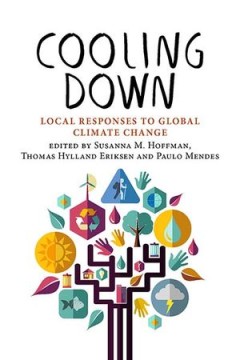
Cooling Down : Local Responses to Global Climate Change
Climate change is a slowly advancing crisis sweeping over the planet and affecting different habitats in strikingly diverse ways. While nations have signed treaties and implemented policies, most actual climate change assessments, adaptations, and countermeasures take place at the local level. People are responding by adjusting their practices, livelihoods, and cultures, protesting and migratin…
- Edition
- -
- ISBN/ISSN
- 9781800731899
- Collation
- -
- Series Title
- -
- Call Number
- -
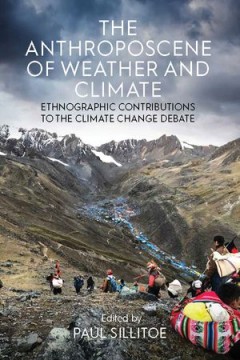
The Anthroposcene of Weather and Climate : Ethnographic Contributions to the …
While it is widely acknowledged that climate change is among the greatest global challenges of our times, it has local implications too. This volume forefronts these local issues, giving anthropology a voice in this great debate, which is otherwise dominated by natural scientists and policy makers. It shows what an ethnographic focus can offer in furthering our understanding of the lived realit…
- Edition
- -
- ISBN/ISSN
- 9781800732780
- Collation
- -
- Series Title
- -
- Call Number
- -
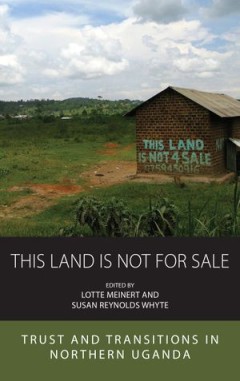
This Land Is Not For Sale : Trust and Transitions in Northern Uganda
Although violent conflict has declined in northern Uganda, tensions and mistrust concerning land have increased. Residents try to deal with acquisitions by investors and exclusions from forests and wildlife reserves. Land wrangles among neighbours and relatives are widespread. The growing commodification of land challenges ideals of entrustment for future generations. Using extended case studie…
- Edition
- -
- ISBN/ISSN
- 9781805390473
- Collation
- -
- Series Title
- -
- Call Number
- -
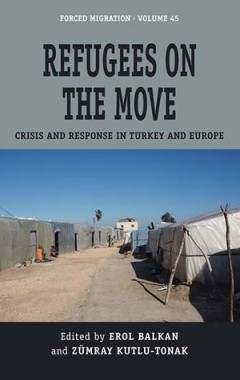
Refugees on the Move : Crisis and Response in Turkey and Europe
Refugees on the Move highlights and explores the profound complexities of the current refugee issue by focusing specifically on Syrian refugees in Turkey and other European countries and responses from the host countries involved. It examines the causes of the movement of refugee populations, the difficulties they face during their journeys, the daily challenges and obstacles they experience, a…
- Edition
- -
- ISBN/ISSN
- 9781800736528
- Collation
- -
- Series Title
- -
- Call Number
- -
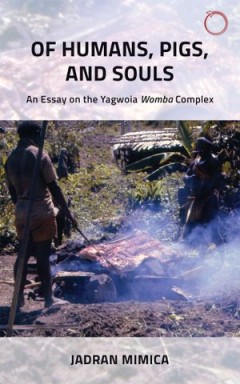
Of Humans, Pigs, and Souls : An Essay on the Yagwoia Womba Complex
For the Yagwoia-Angan people of Papua New Guinea womba is a malignant power with the potential to afflict any soul with cravings for pig meat and human flesh. Drawing on long-term research among the Yagwoia, and in an analysis informed by phenomenology and psychoanalysis, Jadran Mimica explores the womba complex in its local cultural-existential determinations and regional permutations. He atte…
- Edition
- -
- ISBN/ISSN
- 9781912808311
- Collation
- -
- Series Title
- -
- Call Number
- -
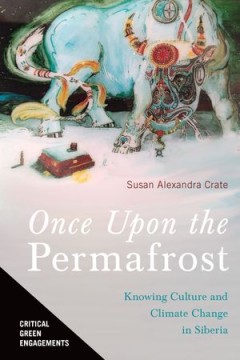
Once Upon the Permafrost : Knowing Culture and Climate Change in Siberia
Once Upon the Permafrost is a longitudinal climate ethnography about “knowing” a specific culture and the ecosystem that culture physically and spiritually depends on in the twenty-first-century context of climate change. The author, anthropologist Susan Alexandra Crate, has spent three decades working with Sakha, the Turkic-speaking horse and cattle agropastoralists of northeastern Siberia…
- Edition
- -
- ISBN/ISSN
- -
- Collation
- -
- Series Title
- -
- Call Number
- -
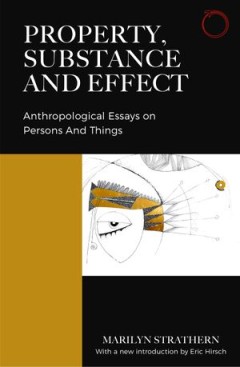
Property, Substance, and Effect : Anthropological Essays on Persons and Things
This title draws on Strathern‚Äôs interest in the reification of social relations. If the world is shrinking in terms of resources and their access, it is expanding in terms of new candidates for proprietorship. How new relations come into being is among the many questions about property, ownership, and knowledge brought together here. Twenty years have not diminished interest in the book�…
- Edition
- -
- ISBN/ISSN
- -
- Collation
- -
- Series Title
- -
- Call Number
- -

A Sensory Education
A Sensory Education takes a close look at how sensory awareness is learned and taught in expert and everyday settings around the world. Anna Harris shows that our sensing is not innate or acquired, but in fact evolves through learning that is shaped by social and material relations. The chapters feature diverse sources of sensory education, including field manuals, mannequins, cookbooks and fla…
- Edition
- -
- ISBN/ISSN
- 9781000182156
- Collation
- -
- Series Title
- -
- Call Number
- 301 HAR s
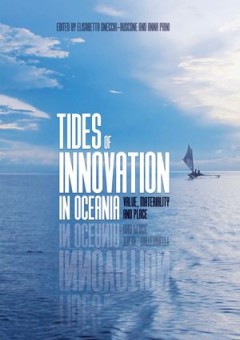
Tides of Innovation in Oceania Value, materiality and place
Tides of Innovation in Oceania is directly inspired by Epeli Hau‘ofa’s vision of the Pacific as a ‘Sea of Islands’; the image of tides recalls the cyclical movement of waves, with its unpredictable consequences. The authors propose tides of innovation as a fluid concept, unbound and open to many directions. This perspective is explored through ethnographic case studies centred on deeply…
- Edition
- -
- ISBN/ISSN
- 9781760460921
- Collation
- -
- Series Title
- -
- Call Number
- -
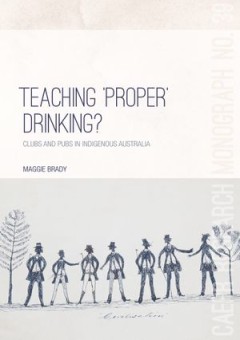
Teaching ‘Proper’ Drinking? Clubs and pubs in Indigenous Australia
"In Teaching ‘Proper’ Drinking?, the author brings together three fields of scholarship: socio-historical studies of alcohol, Australian Indigenous policy history and social enterprise studies. The case studies in the book offer the first detailed surveys of efforts to teach responsible drinking practices to Aboriginal people by installing canteens in remote communities, and of the purchase…
- Edition
- -
- ISBN/ISSN
- 9781760461577
- Collation
- -
- Series Title
- -
- Call Number
- -
 Computer Science, Information & General Works
Computer Science, Information & General Works  Philosophy & Psychology
Philosophy & Psychology  Religion
Religion  Social Sciences
Social Sciences  Language
Language  Pure Science
Pure Science  Applied Sciences
Applied Sciences  Art & Recreation
Art & Recreation  Literature
Literature  History & Geography
History & Geography